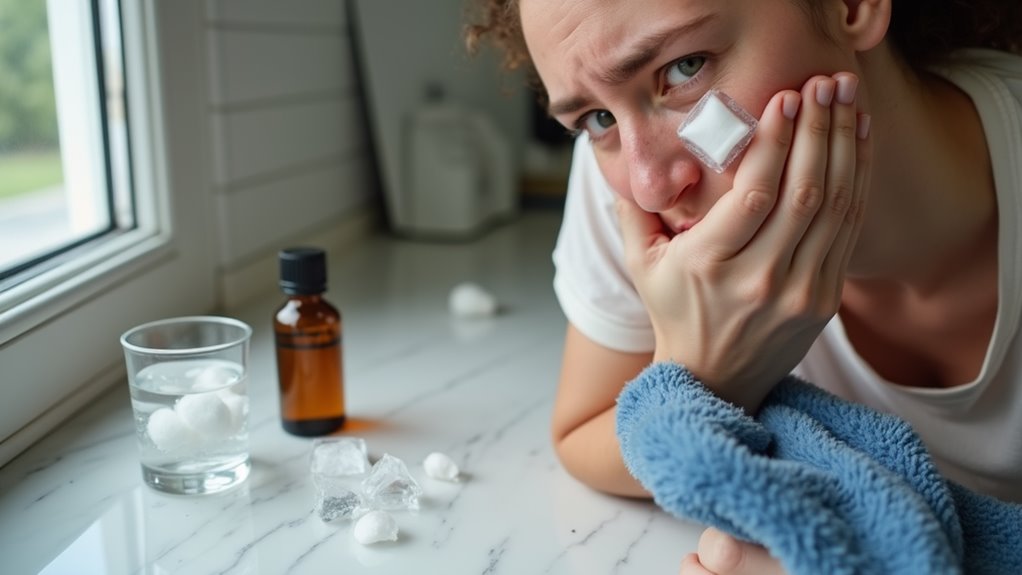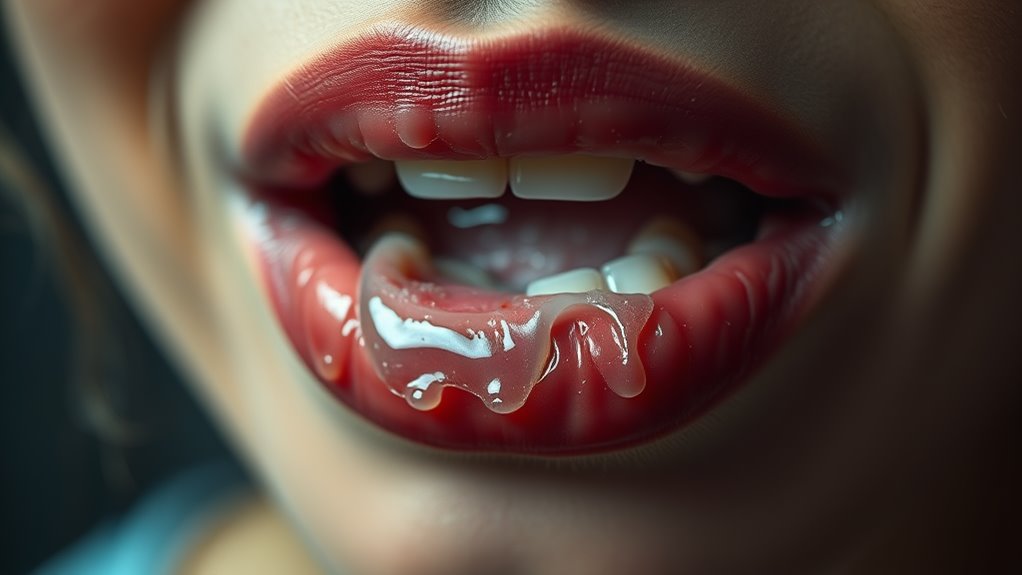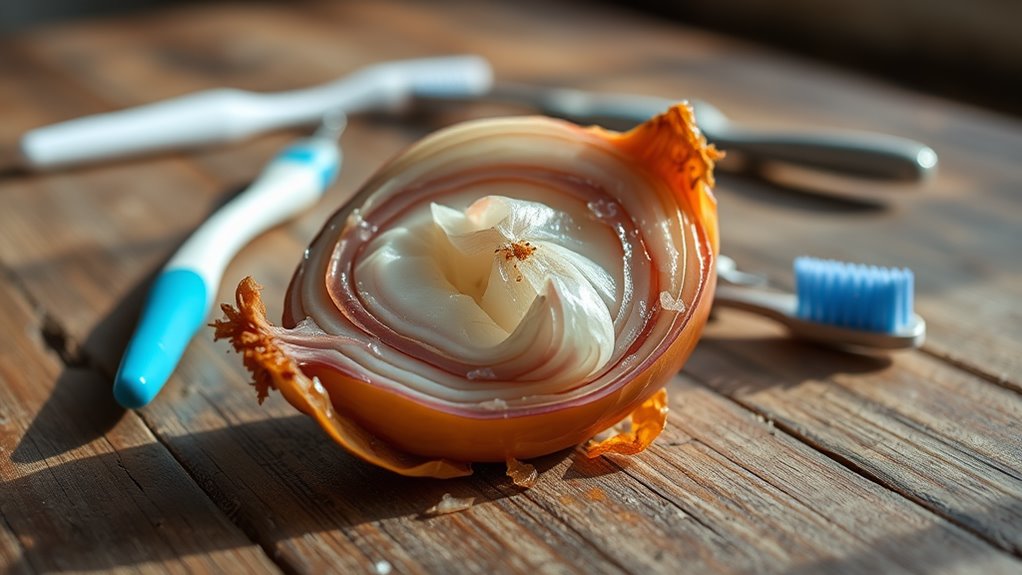Got a Toothache. Do THIS Before Calling the Dentist!
If you’ve got a throbbing tooth, you’re probably desperate for relief right now. While a dentist’s visit may be inevitable, you don’t have to suffer through the wait. Several proven home remedies can help manage your dental pain effectively and safely. From simple saltwater rinses to specific pressure points, these emergency solutions can make a significant difference in your comfort level. Let’s explore your immediate options for tackling that toothache.
Understanding Your Toothache: Common Causes and Types
Pain in your tooth can be both frustrating and concerning, especially when you’re unsure of its root cause. Before trying any toothache relief trick, it’s crucial to understand what type of pain you’re experiencing.
Sharp, shooting pain often indicates exposed nerve endings or cracked teeth, while dull, persistent aches might suggest decay or infection.
Your toothache could stem from several sources: cavities breaking through enamel, gum disease affecting tooth roots, or even sinus pressure pushing against upper teeth.
Temperature sensitivity typically points to worn enamel or receding gums, while pain when biting suggests a deeper issue like an abscess or damaged filling.
Sometimes, jaw clenching or grinding can mimic toothache symptoms. Additionally, warning signs of serious dental issues such as persistent pain or swelling should prompt immediate consultation with a dentist.
Quick Relief: Safe At-Home Remedies and First Aid Steps
Several simple remedies can provide temporary relief while you wait for your dental appointment.
Rinse your mouth with warm salt water for 30 seconds to reduce inflammation and kill bacteria.
Apply a cold compress to your cheek near the affected area for 15 minutes to numb the pain and decrease swelling.
Try over-the-counter pain relievers like ibuprofen or acetaminophen, following package instructions.
Clove oil works as a natural numbing agent – apply it directly to the painful tooth with a cotton swab.
You can also create a paste using crushed garlic or ginger, both known for their anti-inflammatory properties.
Keep your head elevated while sleeping to prevent blood from rushing to the affected area.
If you have a loose filling, temporary dental cement from your local pharmacy can protect the exposed cavity.
Don’t place aspirin directly on your gums, as this can cause tissue damage.
Additionally, using a saltwater rinse can help reduce inflammation and promote healing as you manage your toothache.
When to Stop Self-Treatment and Call a Professional
Although home remedies can provide temporary relief, you should seek immediate professional care if your toothache persists beyond 1-2 days or worsens. Don’t ignore these critical warning signs that require urgent dental attention.
| Warning Sign | Action Required |
|---|---|
| Severe swelling | Emergency dental visit |
| Fever or chills | Same-day appointment |
| Trouble breathing | Call 911 immediately |
| Sharp, shooting pain | Urgent care needed |
Your body’s sending clear signals when self-treatment isn’t enough. Watch for pus around the affected tooth, difficulty swallowing, or pain that spreads to your jaw or neck. These symptoms could indicate a serious infection that might spread to other parts of your body. Ignoring tooth pain can lead to serious infections that may escalate and affect your overall health.
If you’ve experienced trauma to your mouth or notice a cracked or loose tooth, don’t wait to see if it improves. Modern dental techniques can save your tooth, but time is crucial. The longer you delay treatment, the higher the risk of permanent damage.
Prevention Tips to Avoid Future Dental Emergencies
While treating dental emergencies is important, preventing them is even better. You can significantly reduce your risk of dental emergencies by adopting smart preventive strategies that protect your teeth and gums.
Modern dental science has identified key practices that help maintain optimal oral health and prevent sudden dental issues.
-
Create a robust dental care routine by brushing twice daily with an electric toothbrush, flossing with innovative tools like water flossers, and using alcohol-free antimicrobial mouthwash that won’t dry out your mouth.
-
Invest in a custom-fitted nightguard if you grind your teeth, and wear appropriate protective gear during sports activities to prevent trauma-related dental emergencies.
-
Schedule regular dental checkups every six months for professional cleaning and early detection of potential issues, as neglecting routine dental check-ups can lead to serious oral health consequences.
Consider getting a 3D dental scan annually to track changes in your oral structure and catch problems before they become emergencies.




